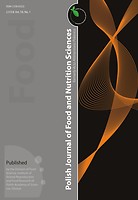
Photo from archive.org
The term ‘weed’ defi nes a plant that does not have any function considered useful for agricultural production and causes damage to existing plants. The harmfulness of weeds appears mainly… Click to show full abstract
The term ‘weed’ defi nes a plant that does not have any function considered useful for agricultural production and causes damage to existing plants. The harmfulness of weeds appears mainly in the following aspects: competition for solar radiation, water and nutrients, depreciation of the crop in the presence of fragments of pests, development of pests and diseases. Sometimes the term ‘plant parasite’ is incorrectly used as a weed equivalent. Thus, parasitic plants are plants that are often deemed undesirable. In the most disadvantaged areas of the world there is a need to look for less expensive food sources [Khattak et al., 2006]. Conventional vegetables grown in fi elds are expensive for most people. Parasitic plants could prove to be a good alternative for expensive vegetables [Ceccanti et al., 2018]. There is evidence dating back many centuries about the use of some parasitic plants as food in times of famine or as a source of precious drugs widely used in folk medicine. Nevertheless, very little is known about the richness of secondary metabolites of parasitic plants and their potential use in human nutrition.
Journal Title: Polish Journal of Food and Nutrition Sciences
Year Published: 2020
Link to full text (if available)
Share on Social Media: Sign Up to like & get
recommendations!